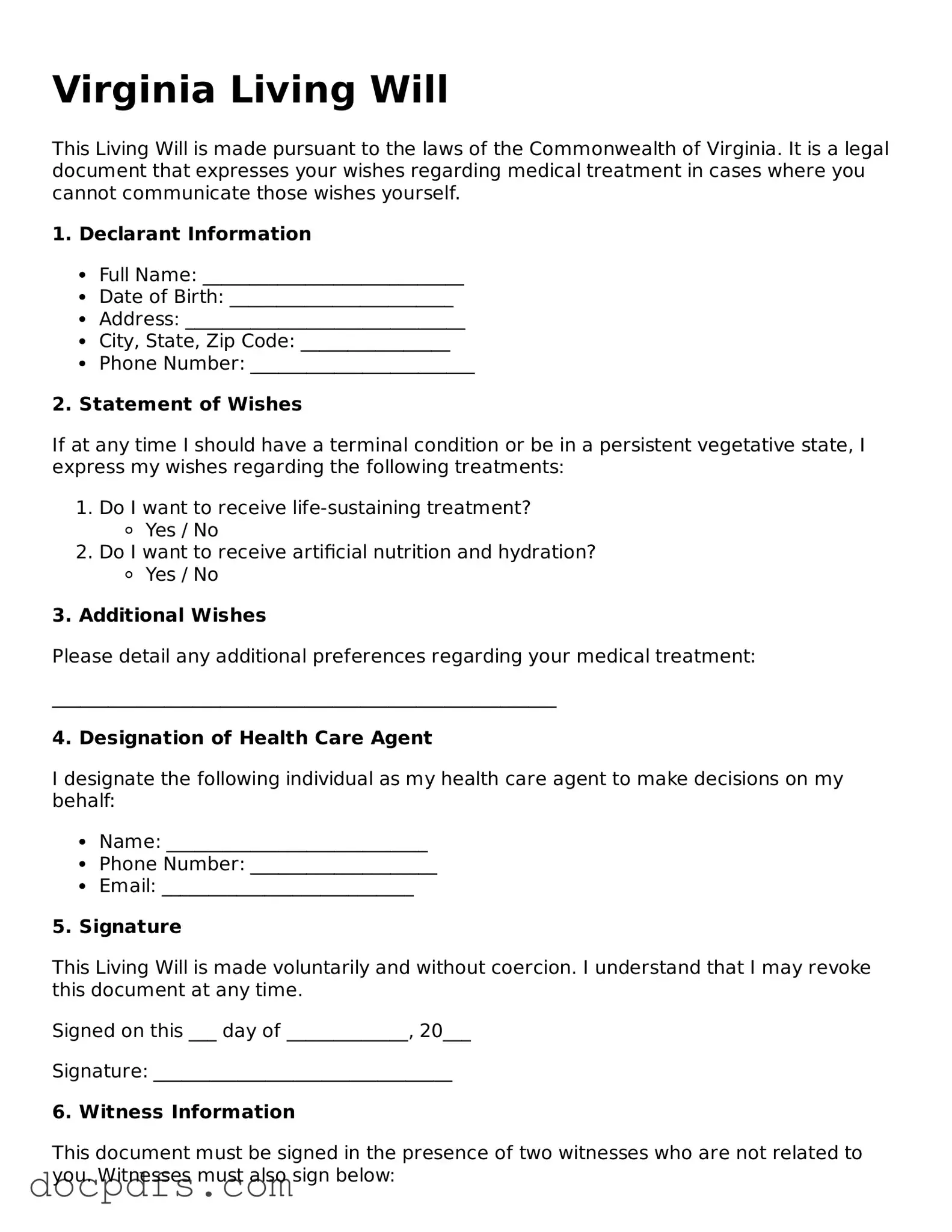Free Virginia Living Will Form
A Virginia Living Will is a legal document that allows individuals to express their wishes regarding medical treatment in the event they become unable to communicate their preferences. This form provides clarity for healthcare providers and loved ones, ensuring that a person's values and desires are respected during critical moments. Understanding the importance of this document can empower individuals to make informed decisions about their healthcare choices.
Open Living Will Editor Now

Free Virginia Living Will Form
Open Living Will Editor Now

Open Living Will Editor Now
or
⇓ Living Will
Finish this form the fast way
Complete Living Will online with a smooth editing experience.